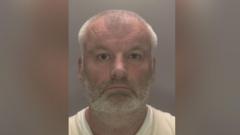
As the VE Day celebrations get underway across the country, party leaders are reflecting on what the day means to them.
A week-long series of events kicked off on Monday with a tribute from the King, a military procession, and a fly past to mark the 80th anniversary of the end of World War Two in Europe.
Prime Minister Keir Starmer and Leader of the Opposition Kemi Badenoch have written their thoughts on the historic occasion for Metro.
Now, the leaders of the three largest UK-wide parties in the House of Commons – the Liberal Democrats, Reform UK, and the Green Party, write below about the importance of the day, the historical significance, and what VE Day means in 2025.
Ed Davey: Britain led the world in 1945, we must do so again
80 years ago today, huge crowds of people gathered outside Buckingham Palace and on Whitehall, jubilantly waving Union Flags as they came together to celebrate the news that Britain and our allies had defeated the Nazis and secured victory in Europe.
Sign up to Metro's politics newsletter, Alright Gov?
Craig Munro breaks down Westminster chaos into easy to follow insight, walking you through what the latest policies mean to you. Sign up here.
It was without doubt one of our country’s finest hours.
As Winston Churchill told those crowds, this was a victory of the great British nation as a whole. A nation that had bravely stood alone against the Nazis when no one else dared.
Today and always we should be proud of everything they achieved, and remember with gratitude all those who made the ultimate sacrifice in defence of our country and our freedoms – who gave their tomorrows for our todays.

‘We were the first, in this ancient island, to draw the sword against tyranny,’ Churchill said. ‘After a while, we were left all alone against the most tremendous military power that has been seen… The lights went out and the bombs came down. But every man, woman and child in the country had no thought of quitting the struggle.’
What it must’ve felt like for the people in those crowds – parents who had lost sons on the beaches of Normandy, women who had lost husbands in the skies over England at the Battle of Britain, families who had lost loved ones to German bombs.
Everyone who had weathered the Blitz, the blackouts and the ration books. Who sacrificed so much over so many years of death and destruction.

The joy of that victory, the pain of their grief, the sheer relief that it was all over – so many emotions whirling together on the Mall and all over the country.
Above all, it was a moment when people were starting to hope again, to look to the future with real optimism.
And, after six long years of leading the world in standing up to Hitler and defeating facism, Britain took up the challenge of leadership again – not in war, but in peace. We led the world in building what came next.
We helped to forge new forums to foster peace, uphold human rights and improve trade and economic cooperation – from NATO and the United Nations to the European Convention on Human Rights and the Bretton Woods monetary system.
Amidst the rubble of war, in the shadow of the Holocaust, and with the looming spectre of nuclear weapons, British leadership offered real hope for the world.
And despite all the challenges that have followed – all the trials and tribulations of the past eighty years – there is no doubt that the world has been better for it, as a result of British leadership.
In war and in peace, the United Kingdom has remained a powerful force for good: standing tall in the world, championing our values and working together with others.
That is what the world needed 80 years ago, and it’s what the world needs so badly again now.
Ed Davey MP is the leader of the Liberal Democrats
Nigel Farage: Too many don’t respect Britain and our history
Today is a day not only to reflect on the joint triumph of European and American forces and mourn the millions of lives lost, but also to express gratitude for our shared heritage and pride in our national history.
As we approach one of the final VE Day commemorations with living World War II veterans, it is more important than ever to honour their extraordinary sacrifices and fearless courage.
They represent one of the last generations of Britons who stood firm in defence of democracy and prevailed against tyranny.
Yet now we find ourselves at a time where national pride in our history is declining — down 22% — and record numbers are considering leaving Britain altogether. In this moment of reflection, we must remember not only what was fought for, but why it mattered.
VE Day serves as a powerful reminder of the strength, resilience, and the values that have shaped our nation — and why they are worth preserving.
For me, there are several key factors behind the growing lack of pride in our nation’s history: A political class that shows contempt for our heritage and traditions; an education system more focused on ideological indoctrination than genuine learning; and a population explosion rapidly changing the makeup of our country.

VE Day is a good time to reflect on what makes us Proud to be British.
Thanks in large part to our Christian roots, we have long been one of the most accepting countries in the world – welcoming those in genuine need.
We have opened our doors to Protestants from France, Jews fleeing Russia, Asians expelled from Uganda, countless refugees during World War Two, and more recently, Ukrainians escaping the attacks on home soil.
So many of those people have contributed great things to this country and that cannot be overlooked.
But there are undoubtedly those who show no appreciation for being here; those who do pose a threat to others and our British identity.
Increasingly, young people are unaware of the significance of VE day, unaware of the great history of Britain, and unsure they want to remain and build a future here.
For any country to thrive, they must be unified by a common belief or background – regardless of skin color or ethnicity, they must be proud of their commonalities.
For the kind of patriotism and prosperity that we are celebrating today to exist, people must also feel like their ruling class works for them and governs solely in their best interests.
Those failures are what brought me out of retirement to lead Reform UK.
Our mission is not only to revive a struggling economy, fix a broken NHS, and reclaim control of our borders – but to unite the country around what binds us: A deep respect for the British values, culture, and tradition that are being celebrated.
Above all, the government must serve its own people, as our wartime leaders did.
That principle has been lost, and it’s what we are determined to restore.
So I hope that people take the time to show respect to our veterans, our history, and our culture on this anniversary of Victory in Europe, and beyond.
Nigel Farage MP is the leader of Reform UK
Carla Denyer: ‘Never Again’ must be more than empty words
This week, we commemorate 80 years since the end of World War II in Europe – the deadliest conflict in history, which claimed over 50 million lives, including the murder of six million Jewish people in the Holocaust.
We remember the lives lost, and we give our deepest thanks to the veterans who fought to protect our freedoms.
When we talk about those awful events, we often say ‘never again.’ But too often, we let those words remain just that – words.

Sometimes the horror of what happened during that dark period of history can blind us to the ways in which the roots of the destruction – totalitarianism, prejudice, and intolerance – might creep into our own societies today.
Today, governments across the world are restricting the freedoms of their citizens, pursuing aggressive territorial expansion, and exploiting social divisions to consolidate their power.

Take Hungary’s recent ban on Pride parades and other LGBTQ+ gatherings. Russia’s intensifying crackdown on free speech and Putin’s illegal invasion of Ukraine.
Or the Trump administration’s terrifying wave of deportations that seem to be targeting people who have expressed support for Palestine.
Saying ‘never again’ comes with a responsibility to keep our eyes open to what is happening in the world around us. To the language used by political leaders to demonise (like Trump calling Mexicans ‘drug dealers, criminals and rapists’); to dehumanise (referring to migrants as hordes, or Palestinians as ‘vermin’); and to divide (like those pitting ‘Judeo-Christian values’ against ‘alien’ cultures).
And ‘never again’ comes with a responsibility to actively resist these attempts to undermine our bonds to the people around us, whatever our faith, our country of birth, or the colour of our skin.
That means keeping hold of our empathy. Being willing to listen. Trying our best to understand experiences that are not like ours.
We’ve learnt that when political leaders pursue power, control, and territory, it’s ordinary people who pay – whether that’s with our freedoms, our humanity, or our lives.
Carla Denyer is the co-leader of the Green Party of England and Wales
Do you have a story you’d like to share? Get in touch by emailing [email protected].
Share your views in the comments below.







.jpg.webp?itok=1zl_MpKg)





 Bengali (Bangladesh) ·
Bengali (Bangladesh) ·  English (United States) ·
English (United States) ·